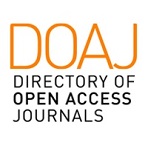Perplexity
an image of complexity. Desire, money and Spinoza
DOI:
https://doi.org/10.29147/datjournal.v9i3.899Keywords:
Value, Capital, Simmel, Imagination, AffectAbstract
Using Tracey Emin’s “I’ve got it all” as a starting point, this article looks at how perplexed we are by the complex relationship between desire and capital. What makes us perplexed is that capital can impose its values on us and govern our desires in such an inescapable way, despite our awareness of its harmful effects. To devel- op this problem, I draw on Spinoza’s ontology of power. I try to understand, on the one hand, the relationship between desire and the creation of value and, on the other, perplexity as a specific mode of imagination and affectivity. The image of money seems to play a crucial role here, even more important than the image of sex. Money, through the effectiveness of its absolute mediality, tends to become the supreme object of our desires. Faced with this, our perplexity is not a sign of powerlessness; on the contrary, it indicates the power of our imagination. As long as we do not lapse into dismay, enthusiasm or indifference, we are not completely subject to capital.
Downloads
References
BALIBAR, E. 2018. Individualité et transindividualité chez Spinoza. In: Spinoza politique: Le transindividuel. Paris : PUF. P. 199-244.
BRECHT, B. 1970. Écrits sur la littérature et l’art 1. Trad. J.-L. Lebrave, J.-P. Lefebvre. Paris: L’Arche.
HARVEY, D. 2019. Agitação global. Trad. Lucas Eduardo Maldonado. Margem esquerda: nº 34, 1º semestre. São Paulo: Boitempo, 2020.
LESNE, J., ANDRÉ, J. & SIMOS, J. 2018. Complexe/Compliqué/Pernicieux. Environnement, Risques & Santé, 17, 411-415. (https://www.cairn.info/revue-environnement-risques-et--sante-2018-4-page-411.htm)
LORDON, F. 2010. Capitalisme, désir et servitude : Marx et Spinoza. Paris : La Fabrique. DOI: https://doi.org/10.3917/lafab.lordo.2010.01
LORDON, F.; ORLÉAN, A. 2008. Genèse de l’État et genèse de la monnaie: le modèle de la potentia multitudinis. In : Spinoza et les sciences sociales : De la puissance de la multidude à l’économie des affects. Paris : Amsterdam. P. 203-275.
SIMMEL, G. 1987. Philosophie de l’argent. Trad. S. Cornille et P. Ivernel. 1 ed. Paris: PUF. SOULAGES, F. 2017. Esthétique de la photographie. 2 ed. Malakof: Colin.
SPINOZA. 2009a. Traité de la réforme de l’entendement. Trad. M. Beyssade. In : Œuvres 1 : Premiers écrits. Paris : PUF.
SPINOZA. 2009b. Oeuvres III – Traité théologico-politique. Trad. J. Lagrée et P.-F. Moreau. Paris: PUF.
SPINOZA. 2010. Éthique. Trad. B. Pautrat. Paris : Seuil.
Downloads
Published
How to Cite
Issue
Section
License
Copyright (c) 2024 DAT Journal

This work is licensed under a Creative Commons Attribution 4.0 International License.


























